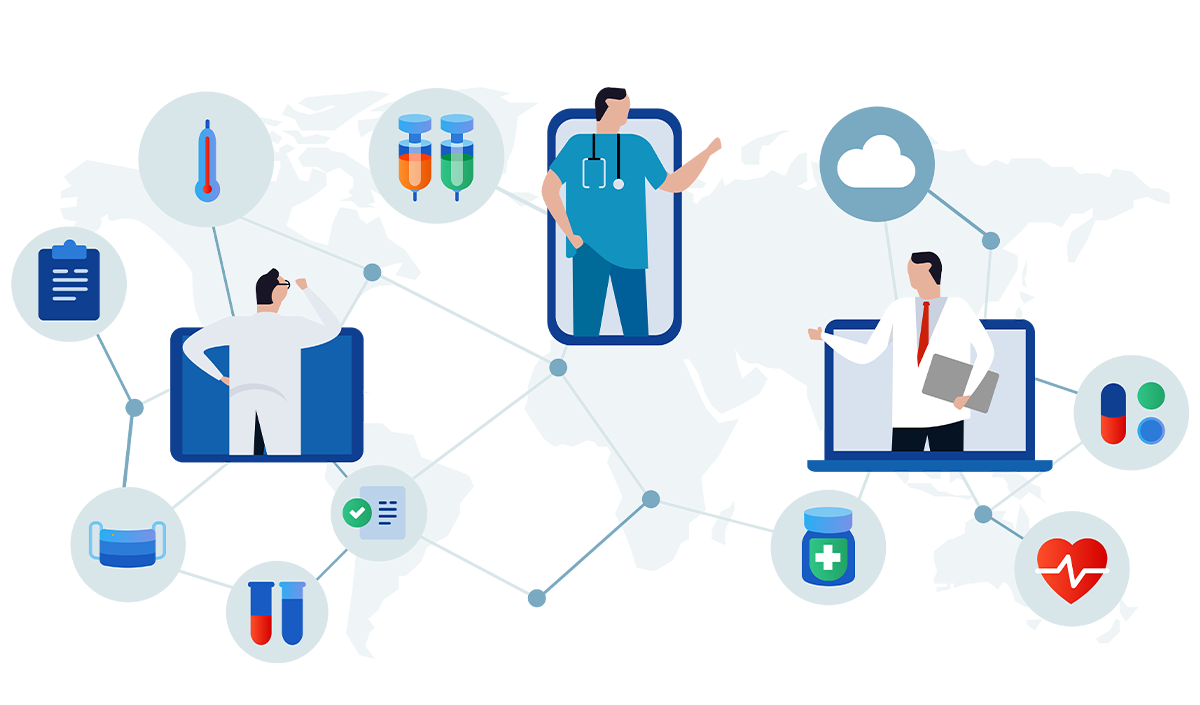This Course Structure is Curated as per the NEP-2020 Guidelines
Course Overview
The M.Sc. Health Technology Assessment program at Malla Reddy Vishwavidyapeeth, Hyderabad, is a postgraduate course designed to equip students with the knowledge and skills to evaluate the clinical, economic, social, and ethical implications of health technologies. This program focuses on integrating evidence-based decision-making, health economics, and policy analysis to assess the value and impact of medical technologies, pharmaceuticals, and healthcare interventions.
This program focuses on equipping students with the theoretical knowledge and hands-on skills from 1st semester itself. The curriculum covers essential topics such as health economics, cost-effectiveness analysis, health policy, decision modeling, and outcomes research. Students gain hands-on experience in conducting HTA studies, analyzing real-world data, and applying frameworks to support healthcare decision-making. The program also emphasizes ethical considerations, stakeholder engagement, and the role of HTA in shaping healthcare policies.
Graduates of this program emerge as ‘Skilled Health Technology Assessors’, enabling them to pursue further higher studies & do research in Health Technology Assessment program along with plenty of job opportunities globally.

Course Details
Description: 2 Years Degree Program
No. of Seats: 20
No. of Credits: 80 minimum & as specified
- Eligibility
- Curriculum Structure
- Program Outcomes
- Career Enhancement
- Higher Studies
- Job Roles & Progression
Academic Qualification: A Bachelor’s degree in B.Sc. Health Data Science/Health Informatics/Digital Health or equivalent with at least 50% aggregate marks from a recognized university.
Semester | Name of the Subject |
Semester 1 | Introduction to Health Systems, Principles of Epidemiology & Research Methodologies, Introduction to AYUSH, Occupational health, English & Communication Skills, Computer Foundation, Understanding Data Source & Structure, Languages for Coding, Introduction to Github, Digital Health Terminology, Practical’s in Coding |
Semester 2 | Principles of Epidemiology & Research Methodologies, Introduction to Biostatistics, Electronic health records, Advanced data analytics (R/ SPSS/ STATA/ SAS), Predictive Analytics(Prediction and Forecasting), Pharmacoeconomics, Dashboards for Healthcare, Regulations & Ethics, advanced data analytics (R/ SPSS/ STATA/ SAS) |
Semester 3 | Costing and Economic evaluation in health care, Effectiveness and Efficiency Evaluation, Measuring Health Outcomes, Cost benefit evaluation, QALY and DALY, Economic Modelling and Prediction for Health care, Equity and Social Impact of Health Technology, Cybersecurity for Health, Practicals for Economic Modelling and Prediction for Health care, Practicals for Costing and Economic evaluation in health care |
Semester 4 | Research Project / Thesis, Review of Topics/Electives |
- Health Technology Evaluation: Proficiency in assessing the clinical effectiveness, cost-effectiveness, and societal impact of health technologies.
- Health Economics Expertise: Advanced skills in applying economic principles to healthcare decision-making and resource allocation.
- Decision Modeling: Knowledge of building and interpreting decision-analytic models to support HTA.
- Policy Analysis: Competence in analyzing healthcare policies and their implications for technology adoption.
- Stakeholder Engagement: Skills in engaging with policymakers, clinicians, and patients to ensure HTA findings are actionable.
- Ethical and Social Considerations: Understanding of ethical, legal, and social issues in the evaluation and implementation of health technologies.
- Real-World Evidence: Ability to incorporate real-world data into HTA studies for evidence-based decision-making.
- Certification in Health Economics: Advanced training in economic evaluation methods for healthcare technologies.
- Decision Modeling Certification: Specialization in building and interpreting decision-analytic models.
- Policy Analysis in Healthcare Certification: Focus on analyzing and influencing healthcare policies.
- Real-World Evidence Certification: Training in using real-world data for HTA and outcomes research.
- Ethics in HTA Certification: Knowledge of ethical frameworks and stakeholder engagement in HTA.
- Ph.D. in Health Economics or HTA: Research opportunities in advanced HTA methodologies and policy analysis.
- Postgraduate Diploma in Public Health: Specialized focus on healthcare policy and systems.
- M.Sc. in Health Policy and Management: Advanced study in healthcare policy and governance.
- M.B.A. in Healthcare Management: Training in managing healthcare organizations and technology adoption.
Duration | Roles and Responsibilities | Salary Range |
0-3 years | Health Technology Assessor, Health Economist, Policy Analyst | ₹6,00,000 – ₹9,00,000 per annum |
3-5 years | Senior HTA Consultant, Health Policy Advisor, Outcomes Researcher | ₹9,00,000 – ₹14,00,000 per annum |
5-10 years | HTA Project Manager, Director of Health Economics, Healthcare Policy Consultant | ₹14,00,000 – ₹22,00,000 per annum |
10+ years | Chief Health Economist, Global HTA Advisor, Director of Healthcare Policy | ₹22,00,000+ per annum |

Fee Structure Per Academic Year
| Tuition Fee | Miscellaneous Fee | Scholarship | ||
| 200000 ₹ | 10000 ₹ | Above 90% – 40000 ₹ | Between 81-90% – 20000 ₹ | Between 71-80% – 10000 ₹ |



